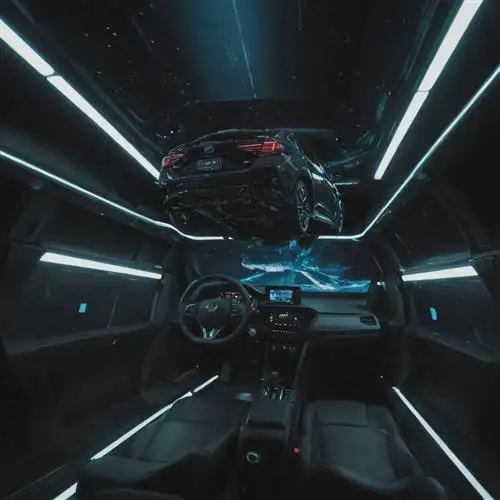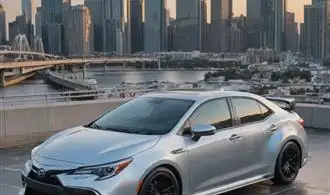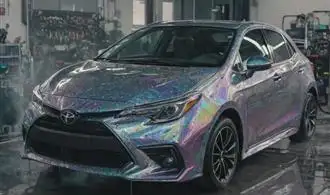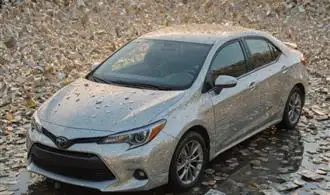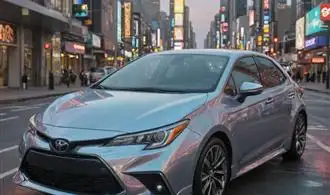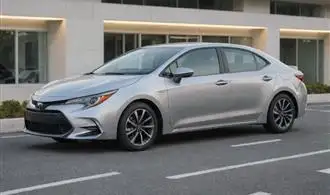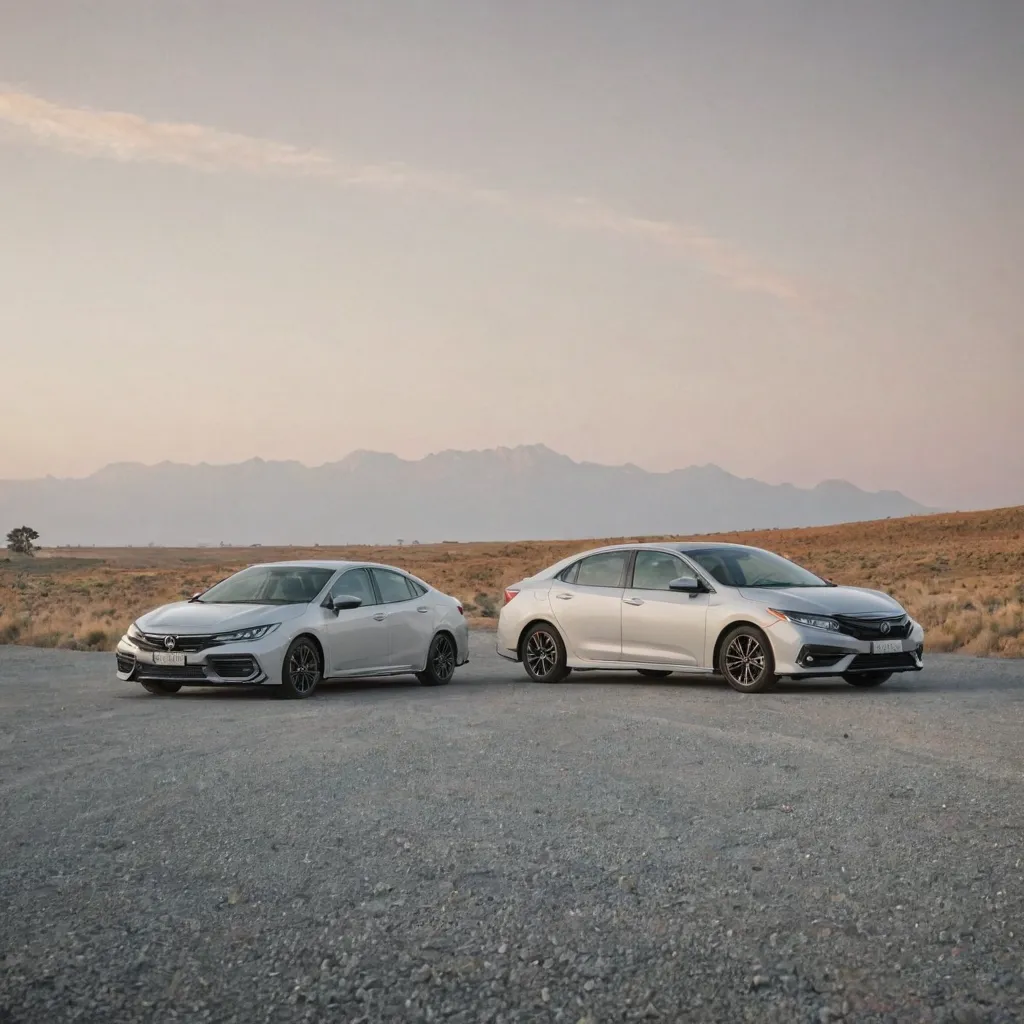
Exterior Design Comparison
When it comes to the exterior design of the Toyota Corolla and Honda Civic, both cars offer a distinctive and refined look, catering to a wide range of preferences. The Corolla boasts a sleek, modern silhouette with a bold front grille, sharp headlights, and a streamlined profile. The latest generation Corolla has undergone a significant design overhaul, adopting a more dynamic and aggressive stance, giving it a sportier appeal. In contrast, the Honda Civic presents a more angular and sculpted exterior, with a distinctive front-end design that is sure to turn heads. The Civic's sweeping roofline and crisp, clean lines contribute to an overall more sophisticated and premium appearance.
In terms of dimensions, the Corolla and Civic are relatively comparable, with the Civic being slightly larger in overall length and width. This difference, however, is minor and may not significantly impact the overall driving experience or the vehicle's presence on the road. Both models offer a range of wheel sizes, allowing buyers to customize the look to their preferences, further enhancing the visual appeal of these compact sedans.
One notable area where the Corolla and Civic differ is in their available exterior color options. The Corolla offers a diverse palette of hues, from classic and subdued tones to more vibrant and eye-catching shades. This allows buyers to truly personalize the appearance of their Corolla to match their individual style. The Civic, on the other hand, while still offering a respectable selection of colors, may have a slightly more limited range compared to the Corolla.
Interior Space and Comfort
When comparing the interior space and comfort of the Toyota Corolla and the Honda Civic, there are several key factors to consider. Both vehicles offer ample room for passengers, but there are some notable differences that may sway the decision for prospective buyers.
The Toyota Corolla boasts a spacious cabin, with generous headroom and legroom throughout. The front seats provide excellent support and can be adjusted to find the perfect driving position. The rear seats offer a comfortable and roomy experience, making the Corolla a great choice for families or those who frequently transport passengers. The car's cargo space is also quite generous, with a trunk capacity that can accommodate a variety of items.
The Honda Civic, on the other hand, also provides a comfortable and spacious interior. The front seats are supportive and offer good visibility, while the rear seats offer ample legroom and headroom. The Civic's cargo space is slightly smaller than the Corolla's, but it still offers a practical and versatile storage area.
One area where the Civic may have a slight advantage is in its overall interior design and material quality. The Civic's cabin features a more modern and sophisticated aesthetic, with high-quality materials and a well-organized layout. The Corolla's interior, while still functional and durable, may not have the same level of refinement and attention to detail.
Performance and Fuel Efficiency
When comparing the Toyota Corolla and the Honda Civic, the performance and fuel efficiency aspects are crucial factors to consider. The Toyota Corolla boasts a 1.8-liter four-cylinder engine that delivers 139 horsepower and 126 lb-ft of torque. This engine is paired with a continuously variable transmission (CVT) or a six-speed manual transmission, depending on the trim level. The Corolla's engine provides a balance of adequate power for daily driving and impressive fuel economy, with an EPA-estimated 31 mpg in the city and 38 mpg on the highway for the CVT-equipped models.
On the other hand, the Honda Civic offers a range of engine options, including a 2.0-liter four-cylinder engine that produces 158 horsepower and 138 lb-ft of torque, as well as a turbocharged 1.5-liter four-cylinder engine that generates 174 horsepower and 162 lb-ft of torque. The Civic can be equipped with a six-speed manual transmission, a continuously variable transmission (CVT), or a ten-speed automatic transmission, depending on the trim level and engine choice. The Civic's engine options provide more power and a sportier driving experience compared to the Corolla, but the fuel efficiency is slightly lower, with an EPA-estimated 30 mpg in the city and 37 mpg on the highway for the CVT-equipped models.
In terms of acceleration, the Honda Civic has a slight edge over the Toyota Corolla, especially with the turbocharged engine option. The Civic can sprint from 0 to 60 mph in around 7.5 seconds, while the Corolla takes approximately 9 seconds to reach the same speed. However, the Corolla's fuel efficiency advantage may be more important for some buyers who prioritize maximizing their driving range and minimizing fuel costs.
It's worth noting that both the Toyota Corolla and the Honda Civic offer a comfortable and composed ride, with well-tuned suspension systems that provide a smooth and controlled driving experience. The Civic may have a slight edge in terms of handling agility, but the Corolla's more focused approach to comfort and fuel efficiency makes it a compelling option for those who prioritize those attributes.
Advanced Safety Features
When it comes to advanced safety features, the Toyota Corolla and Honda Civic are two of the top contenders in the compact car segment. Both vehicles offer a suite of advanced safety technologies designed to protect drivers and passengers, but there are some key differences to consider.
The Toyota Corolla boasts an impressive array of standard safety features, including the Toyota Safety Sense 2.0 suite. This package includes pre-collision system with pedestrian detection, lane departure alert with steering assist, automatic high beams, and dynamic radar cruise control. Additionally, the Corolla offers available features like blind spot monitoring with rear cross-traffic alert and a bird's-eye view camera system for enhanced all-around visibility.
The Honda Civic counters with its own comprehensive Honda Sensing suite of safety technologies. This includes collision mitigation braking system, road departure mitigation, lane keeping assist, adaptive cruise control, and traffic sign recognition. The Civic also offers available features like blind spot information system and rear cross-traffic monitor to help drivers stay aware of their surroundings.
One key difference between the two models is the inclusion of safety features as standard equipment. The Toyota Corolla comes equipped with the Toyota Safety Sense 2.0 package as standard across all trim levels, ensuring these advanced safety features are accessible to all Corolla buyers. In contrast, the Honda Sensing suite is optional on lower Civic trims, requiring an additional investment to access the full suite of safety technologies.
In terms of crash test ratings, both the Toyota Corolla and Honda Civic have earned top safety ratings from the Insurance Institute for Highway Safety (IIHS) and the National Highway Traffic Safety Administration (NHTSA). This speaks to the commitment of both automakers to prioritizing passenger safety and protection.
Ownership Costs and Maintenance
When it comes to the Toyota Corolla and the Honda Civic, the cost of ownership and maintenance are crucial factors to consider. Both vehicles have a reputation for reliability, but understanding the specific maintenance requirements and costs associated with each can help you make an informed decision.
The Toyota Corolla is known for its exceptional reliability and low maintenance costs. The vehicle's simple and straightforward design, combined with Toyota's commitment to quality, means that owners can expect fewer repair and maintenance needs over the long term. Routine maintenance tasks, such as oil changes, tire rotations, and brake pad replacements, tend to be more affordable for the Corolla compared to the Civic.
In contrast, the Honda Civic, while also a reliable and well-engineered vehicle, may have slightly higher maintenance costs in certain areas. For example, the Civic's more advanced features, such as turbochargers or higher-end audio systems, can result in more complex and costlier repairs if issues arise. Additionally, the Civic's sportier suspension and braking system may require more frequent maintenance, such as tire replacements or brake pad changes.
When it comes to fuel efficiency, both the Corolla and Civic are known for their excellent gas mileage, with the Corolla often edging out the Civic slightly in this regard. This can result in lower fuel costs over the life of the vehicle, especially for drivers who rack up high mileage.
Furthermore, the Toyota Corolla's reputation for longevity and reliability means that owners can expect to keep the vehicle for a longer period of time before needing to replace it. This can translate to a lower total cost of ownership over the long run, as the Corolla may retain its value better and require fewer major repairs or replacements.


